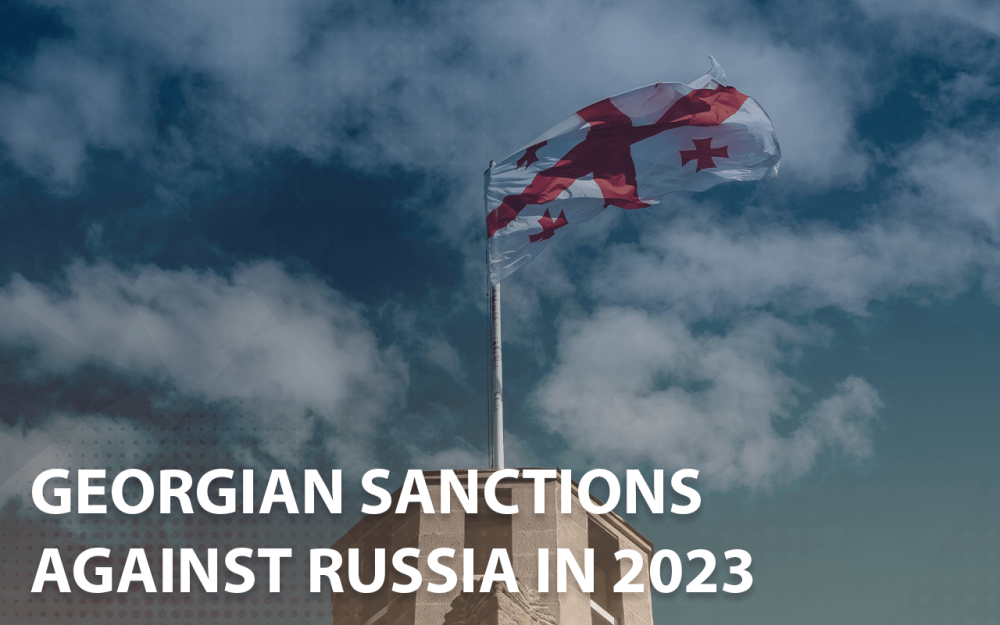
David O'Sullivan, the European Union sanctions representative, said at the summit in Qatar that he is sure that Georgia is not going to impose sanctions on Russia, which declared war on Ukraine and invaded its territory.
O'Sullivan highlighted the "positive impressions" after the meetings and said he was "impressed" with the steps the government had taken to combat sanctions evasion at a briefing in Tbilisi.
In recent months, O'Sullivan and his American and British colleagues have traveled not only to Georgia, but also to other countries, emphasizing the importance of "partnership and cooperation" as the reason for their trip.
An EU sanctions official said he and other sanctions officials were looking into how the 38 munitions found by the Ukrainians could be exported in violation of financial sanctions. He also emphasized that Georgia had taken "significant measures" to control the export of these products and that his government was "vigilant" about it.
The Georgian government had a "very serious obligation" not to circumvent sanctions by using Georgian territory, he said, adding that the bloc appreciated "Georgia's very specific situation [as the country's territories are occupied by Russia]".
"We must ensure that [enforcement of sanctions] does not become a barrier to our close bilateral relations; I am glad that what we have seen in the last two days does not give grounds for this," he said. "We, the European Union and Georgia, which hopefully one day will join the bloc, have an important bilateral agenda [...]
O'Sullivan made it clear in his remarks that the EU does not want to "interfere in legitimate trade relations" between Georgia and Russia and that this is a matter for Georgian business and government.
The authorities are sure that Georgia is not being used to avoid Russian sanctions
Although Georgia has not imposed sanctions on Russia for its invasion of Ukraine, Finance Minister Lasha Khutsishvili said the government will "make sure" that its territory is not used to avoid international sanctions on the war.
According to Khutsishvili, internal organizations "strictly followed" the trade and financial sanctions imposed against the Kremlin.
In addition, he stated that Georgia was "in full compliance with all applicable sanctions" against ground vehicles, naval vessels and aircraft. He also promised that sanctioned Russian businesses or vehicles will not be allowed in Georgia.
"What was sanctioned and what is considered a violation of sanctions is reflected in the public information on sanctions, which was made available by various agencies of the European Union, as well as the USA, the United Kingdom and Japan," Khutsishvili said.
He added that it was "important" to distinguish between different forms of sanctions, pointing out that some companies were banned from investing while others were banned from buying cargo.
Does Georgia support sanctions against Russia?
Irakli Gharibashvili said at the Qatar Economic Forum in Doha that Georgia's annual economic turnover with Russia is "less than 1 billion dollars". “Don't you think that's funny? The Russian economy cannot be affected by this $1 billion.
By contrast, the EU does as much business with Russia in just four days as we do in a year. When they ask us to impose sanctions on Russia, where is the logic?
In addition, he compared the Ukraine crisis to the international response to the 2008 Russia-Georgia war, asking: “Has anyone imposed sanctions on Russia because of our struggle? No one on the entire planet responded officially.
Where is the logic that says: "Our war is not a war", but it is in Ukraine?
Summary
In the end, the government of Georgia does not join the strict sanctions imposed against Russia by the whole world and Europe and remains in a neutral position.
At the same time, the government of Georgia, as you read above, made a strict and firm statement regarding the sanctions and stated that they do not see the reason for the imposition of sanctions on Russia.